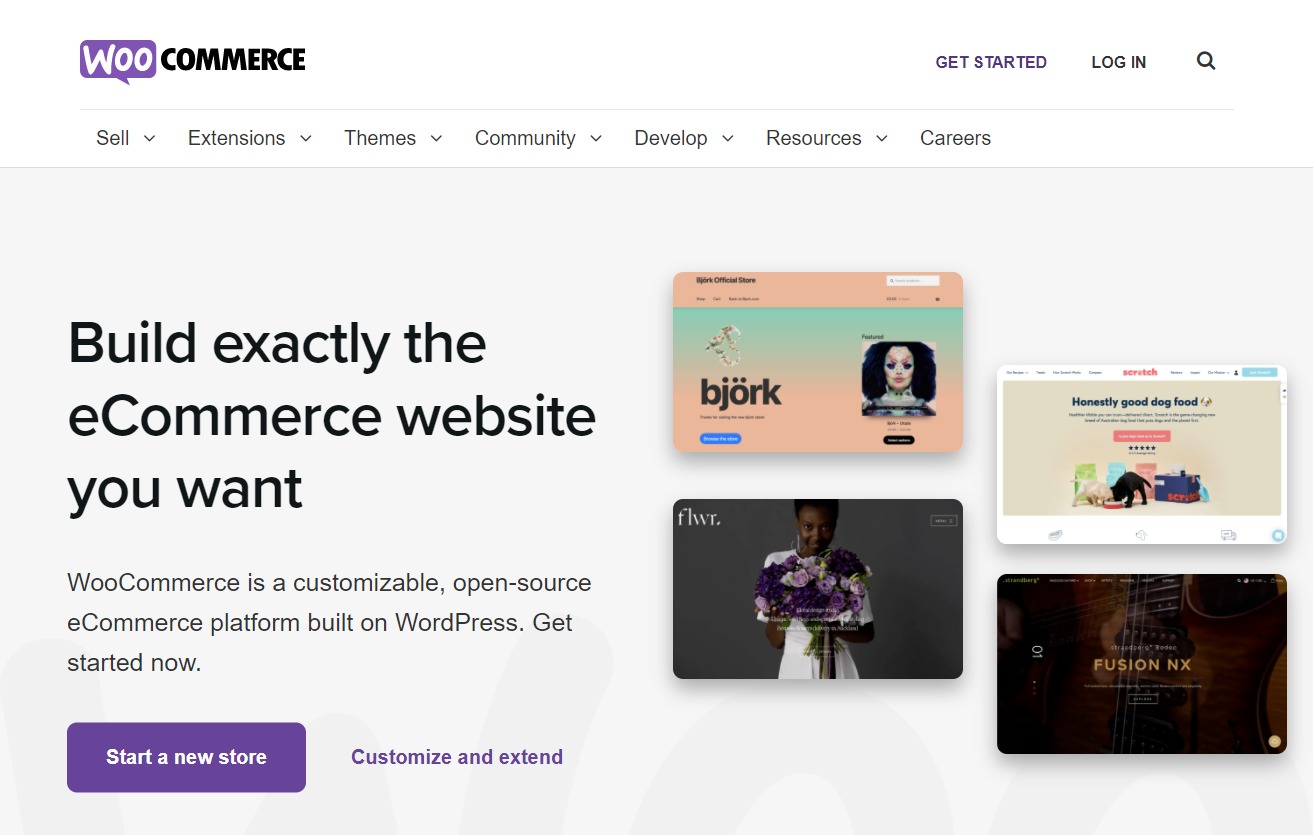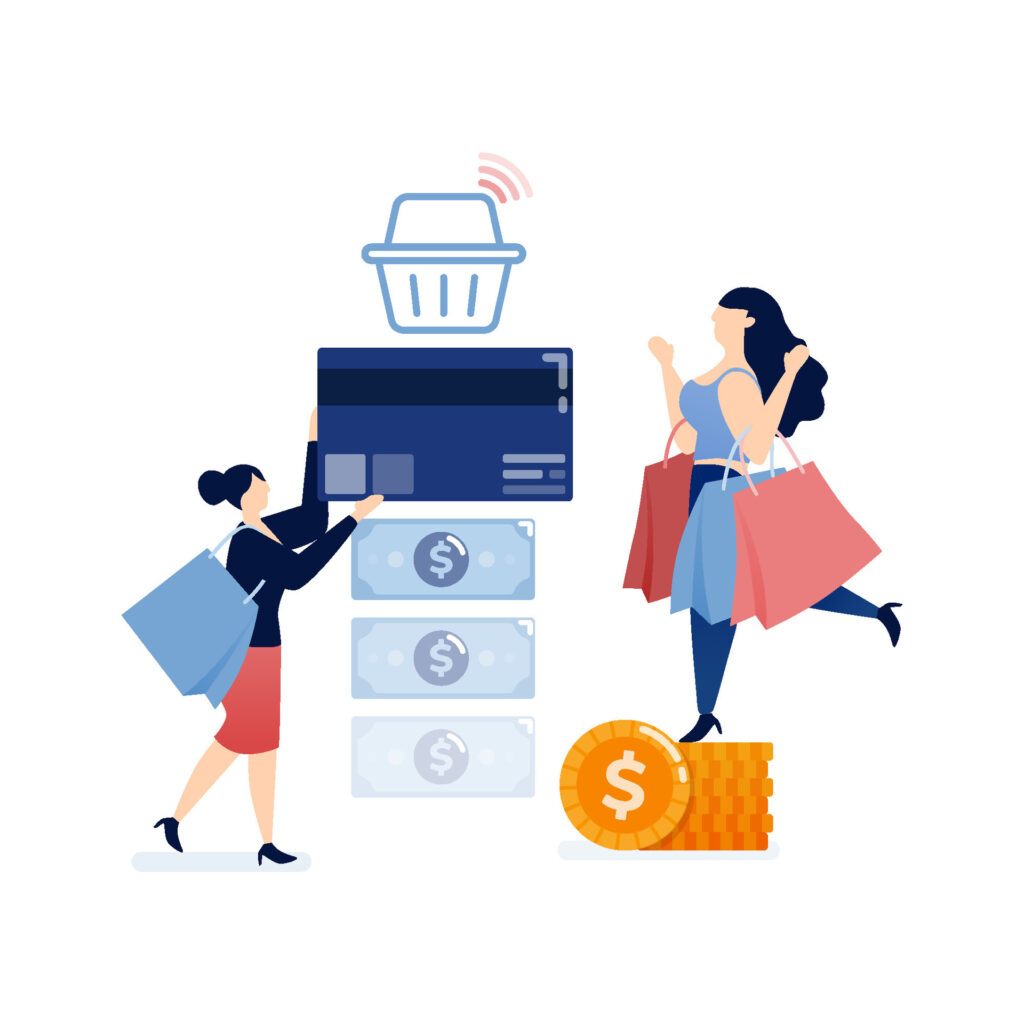Powering Your Online Sales
Ecommerce
Launch and grow your online business with our tailored e-commerce solutions. We build secure, user-friendly platforms equipped with the features you need to drive sales and deliver exceptional customer experiences.

Expand Your Reach, Boost Your Sales: Why Ecommerce is Essential
Electronic commerce refers to online shopping and a wide range of electronic transactions conducted through digital channels like mobile apps and the Internet. Its popularity has surged dramatically in recent decades, in many ways transforming traditional retail. E-commerce provides the distinct advantage of buying and selling products worldwide, available to customers twenty-four hours a day, all while avoiding the extensive overhead expenses of a physical retail location.


Embrace the Future of Business: Electronic Commerce Solutions in 2025
While the common perception of e-commerce often centers on direct-to-consumer (B2C) interactions, the realm of electronic commerce extends far beyond. It encompasses a diverse range of online activities, including dynamic online auction platforms, convenient online banking services, efficient online ticketing and reservation systems, and robust business-to-business (B2B) transactions. Notably, the recent surge in e-commerce growth has significantly expanded into sales facilitated through mobile devices, a trend widely recognized as “m-commerce,” which is essentially a vital and rapidly growing subset within the broader e-commerce ecosystem.
If you believe your business could benefit from strategic digital growth…
Empowering Business Relationships Through B2B E-Commerce
Our Comprehensive E-Commerce
Solutions for Your Business
In essence, Business-to-Business (B2B) e-commerce simply refers to any online transaction that takes place directly between two distinct businesses. Successful examples of thriving B2B enterprises include companies like HubSpot, renowned for its inbound marketing and sales software solutions, and Xero, a leading provider of accounting software specifically designed for small and medium-sized businesses.
Business-To-Consumer E-Commerce (B2C)
Business-to-Consumer (B2C) e-commerce describes the direct online exchange of products or services between companies and individual consumers. The prevalence of B2C e-commerce has significantly increased as a growing number of consumers now favor the convenience and accessibility of purchasing goods and services through online channels.
Consumer-To-Consumer E-Commerce (C2C)
Customer-to-Customer (C2C) e-commerce describes online transactions that occur directly between individual consumers, who act as both buyers and sellers within a common digital marketplace. Essentially, these platforms enable consumers to directly offer their own products or services for sale to other interested consumers.
Consumer E-Commerce (C2B)
Consumer-to-Business (C2B) e-commerce describes a distinct form of online transaction where individual consumers directly offer their products or services to businesses. This model fundamentally flips the traditional Business-to-Consumer (B2C) dynamic, effectively reversing the conventional roles of buyer and seller in the exchange.
Business-To-Administration (B2A)
Business-to-Administration (B2A) e-commerce describes the realm of online transactions that occur between businesses and entities within the public sector. This digital interaction streamlines access to and delivery of essential public services, such as social security administration, employment resources, and legal documentation processes.
Your Step-by-Step Plan for Entering the World of E-Commerce
Unlike a physical store limited to local clientele, e-commerce can expand the marketing of its products far beyond geographical boundaries, reaching a significantly larger pool of potential customers. Furthermore, while physical stores operate within limited hours, an e-commerce platform remains open around the clock, presenting a substantial opportunity to increase sales.
E-commerce also boasts considerably lower operating costs compared to traditional brick-and-mortar establishments. Their operation doesn’t necessarily require extensive staffing or physical premises. This cost-effectiveness enables the offering of particularly competitive prices while maintaining strong profitability.
Finally, an e-commerce manager enjoys the flexibility to work from any location globally, provided they have a reliable internet connection. This location independence has empowered many entrepreneurs to embrace nomadic careers, pursuing their business dreams from anywhere in the world.

Ensuring Success: Our Detailed Procedure
We provide expert guidance through each critical stage of your e-commerce journey, starting with selecting the optimal platform and setting up your online store, to seamlessly integrating secure payment gateways and implementing effective marketing strategies. Our clear and well-defined process ensures a smooth and efficient launch, laying a solid foundation for sustainable and robust online sales growth.
B2C
In Business-to-Consumer (B2C) e-commerce, individual customers navigate online stores, select their desired products or services, and complete purchases through electronic payment methods. These online storefronts are typically managed by retailers, manufacturers, or various other businesses selling directly to the end consumer. To attract and retain this customer base, B2C e-commerce platforms frequently employ diverse marketing strategies. These include offering enticing discounts, providing tailored product recommendations based on browsing history, and facilitating the valuable input of customer reviews. Furthermore, these platforms commonly support a wide array of payment options, encompassing credit and debit cards, convenient digital wallets, and other secure online payment systems. A key advantage of B2C e-commerce lies in its ability to transcend the limitations of physical locations, enabling businesses to reach a significantly broader audience and operate continuously. Simultaneously, consumers benefit from the unparalleled convenience of shopping from any location at any time, coupled with the ease of comparing prices and product features.


C2C
The C2C e-commerce model gained significant traction with the emergence of online marketplaces like eBay, Craigslist, and Facebook Marketplace. Platforms such as Depop, Gumtree, and Shpock have also established their presence. eBay remains a leading platform in this space, having pioneered the model in 1995, closely followed by Etsy, founded a decade later in 2005. These platforms empower individuals to directly connect and conduct transactions, eliminating the need for intermediaries or traditional physical stores. C2C e-commerce presents notable advantages for both buyers and sellers. Buyers often gain access to unique or difficult-to-find items at more competitive prices than traditional retail. Sellers can effortlessly reach a vast audience of potential buyers and often achieve higher earnings compared to conventional selling methods. However, C2C e-commerce also carries inherent risks, including the potential for fraudulent transactions, the possibility of receiving substandard or counterfeit goods, and the occurrence of disputes between buyers and sellers. It is crucial for both parties to implement protective measures, such as carefully evaluating seller ratings and feedback, utilizing secure payment options, and thoroughly inspecting items before purchase.
C2B
C2B e-commerce manifests in various ways. For instance, individuals might establish freelance profiles on online platforms, offering services like writing, web design, or social media management to businesses seeking these skills. Alternatively, consumers could sell used goods to businesses through online auction sites or classified advertising platforms. A significant advantage of C2B e-commerce for businesses is the access it provides to a broad spectrum of talent and specialized expertise without the commitment of full-time hires. This can be particularly advantageous for startups or smaller companies with limited budgets or very specific needs. However, engaging in C2B e-commerce also presents potential risks for businesses. The level of protection and guarantees might not be comparable to those associated with traditional suppliers. Therefore, it's crucial for businesses to carefully assess the quality and reliability of goods and services provided by consumers and to ensure appropriate legal agreements and contracts are in place to mitigate potential issues.


B2A
B2A e-commerce encompasses a broad spectrum of online transactions between businesses and public sector entities. This includes processes like tax payments, license acquisitions, regulatory submissions, and accessing public services such as healthcare or education portals. For instance, a company might utilize a government platform to electronically file tax returns or apply for necessary permits and licenses. Implementing B2A e-commerce offers several advantages for both businesses and public administrations. Businesses can experience reduced time and costs associated with regulatory compliance and accessing public services. Public administrations, in turn, can benefit from improved operational efficiency, a decrease in paperwork, and enhanced transparency and accountability in their processes. However, B2A e-commerce also presents certain challenges, particularly concerning data security and privacy. Public administrations often handle sensitive business information, requiring robust protection against unauthorized access or misuse. Furthermore, B2A transactions must adhere to evolving legal and regulatory frameworks, which can vary across different regions.
Fill Up The Form
Our success in creating business solutions is due in large part to our talented and highly committed team.


